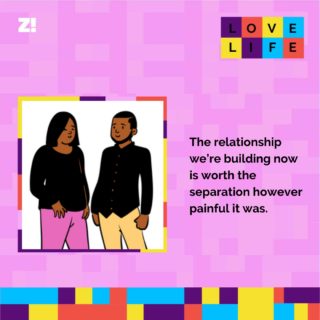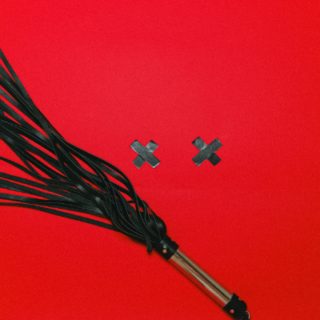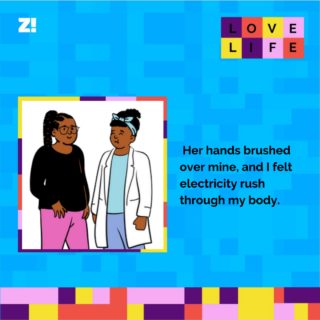The Elevator is a limited Zikoko series that details the growth of young successful Nigerian women. We tell their stories every Tuesday by 12 p.m.
Nora Awolowo did what she had to when people around her didn’t believe in her dreams. At 19, she started her own production company, and by the end of 2019, when the awards started coming in, everyone else came on board. Nora is a 23-year-old filmmaker, and in today’s episode of The Elevator, she talks about her transition from photography to filmmaking and working towards her goal of being the first female cinematographer with a film in the Nigerian cinema.
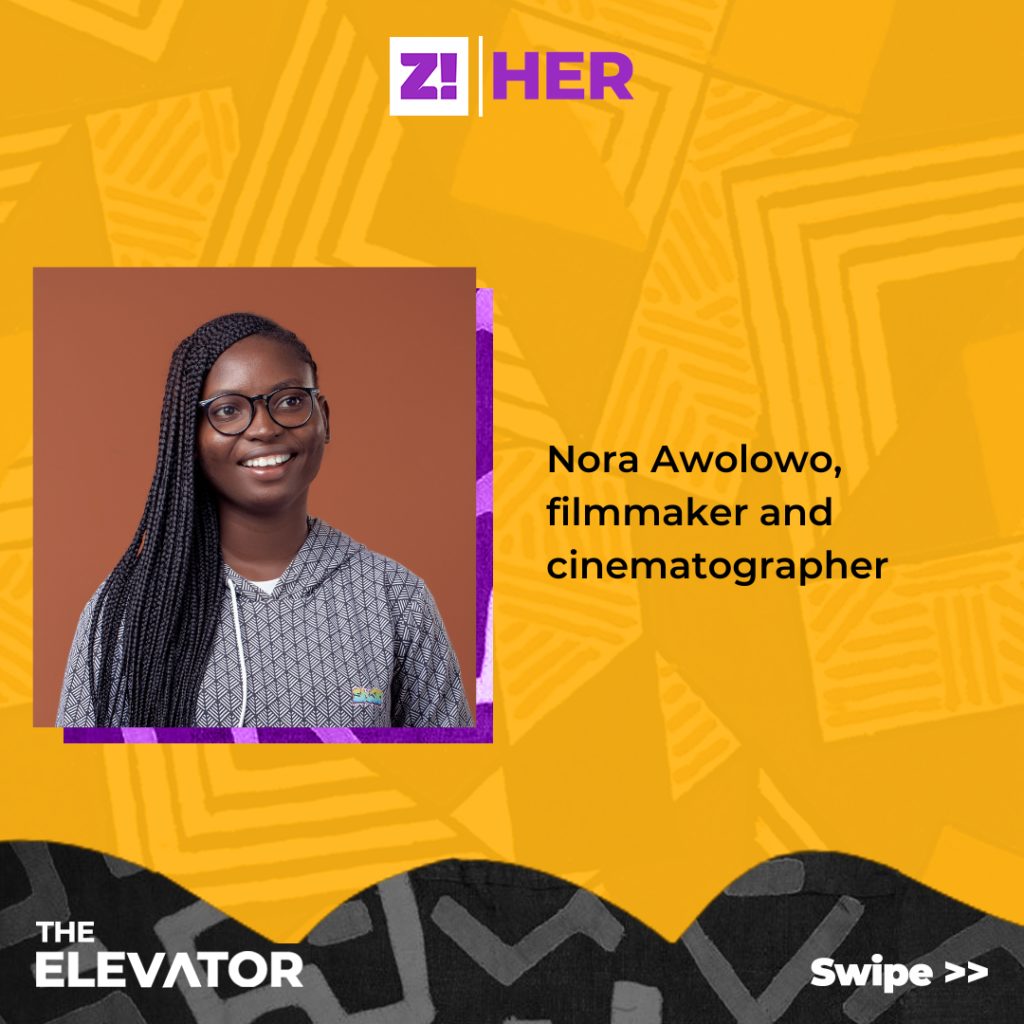
When did you notice your interest in photography?
When I was a child, my dad would take us to a studio to take pictures every festive season. I thought it was quite interesting how photographers made pictures of our poses with the click of a camera. I looked forward to it every year.
Did you want to be a photographer?
No. My parents wanted me to study law. My brother was a computer engineer and my sister was going to become a medical doctor. It made sense for me to choose law but I wanted to be a banker. Bankers seemed smart and wore cool suits. I wanted to be like them. According to my dad, banking was easier than law, so I was being lazy. I stuck to it though.
The banking dream followed me from secondary school to university, and eventually, my parents came around. They advised me to study accounting because with an accounting degree, I wasn’t limited to just working in a bank. I could also get hired in a non-financial firm. I wanted that flexibility, so I studied accounting at Ekiti State University.
Uni experience in 3, 2, 1…
To be honest, I was just trying to prove that I could study accounting and come out with flying colours. In my first and second years, I was always in class and up to date with assignments. But then ASUU went on strike.
ASUU experience in 3, 2, 1… How did that affect you?
My parents wanted me to learn a skill. My mother suggested tailoring, but it wasn’t my speed at all. Around that time, I met someone on Twitter called Dapo*. He was serving as a dentist in Ekiti State Teaching Hospital. It was a date and we were talking about what we liked to do. I told him I liked to take pictures of people but couldn’t afford a camera. My pocket money from my parents at the time was ₦10k per month and a good camera was about ₦300k.
Dapo said I shouldn’t let that stop me. He advised me to use my phone to take pictures in the meantime. He showed me photographers that used phones to take good pictures, and I was inspired. I started practising. Six months later, I got a job at a smartphone company. I was to create content with their smartphone. They didn’t pay a lot of money but within a few months, I was able to save up and get myself a camera. The same day I got my camera, someone asked me to cover a burial ceremony. I was really excited and I did a good job but I decided not to cover funerals again. I realised that I don’t like seeing coffins.
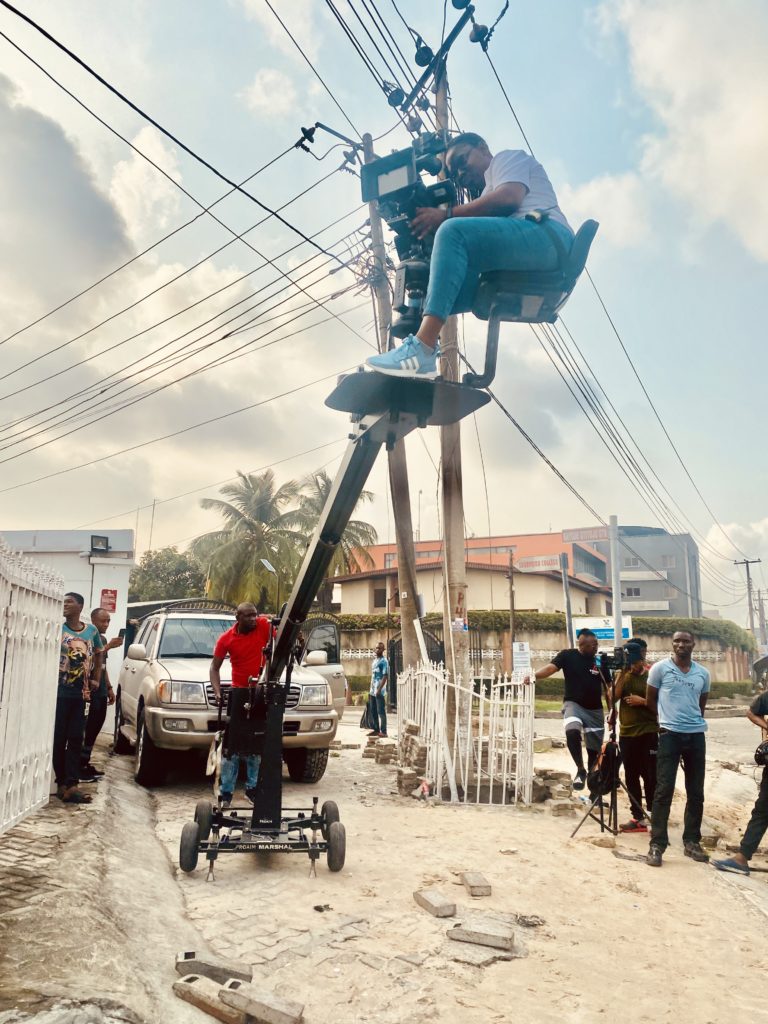
Your parents seem to be very involved in your career trajectory. How did they feel about your new career path?
They weren’t very pleased when I told them I wanted to chase photography. My dad said, “You want to be collecting ₦200 for passport photographs on the streets, abi?” I didn’t let their disbelief stop me though. My gigs had already started paying me good money so I stopped asking my parents for money. I focused on my work instead.
Tell me about the work during that time.
I started taking portraits of people. I enjoyed it so much but I realized I wanted something more. I wanted to do more than take pictures of people — I wanted to tell stories.
Before I could explore, ASUU strike ended and school resumed. I got gigs while I was in school. I got to work with people who made documentaries and I started filming behind the scenes of people’s jobs. The first person I shot was Lota Chukwu. I followed her while she worked on her food show, Lota Takes.
In 2017, the principal of the project I was working on had to return to the UK impromptu. There was no one to edit the project so my team asked me if I could do it since I had been working on it with them for two seasons. I was hesitant at first but I decided to try. I read a lot of articles to help me. I was using a Windows laptop at the time so I used one of the inbuilt applications to edit the first clip. It turned out fine and that’s how I decided that I wanted to focus more on film.
I asked some of my friends who edit professionally what software they use and how they worked. They gave me tips and helped me with the apps I needed. I started getting editing gigs.
What about school?
My final year in school was difficult because I was barely in class. I was always working — I was in Lagos every other week for one project or the other. I graduated with a second class upper in 2019 and I was glad to be done.
Were you still interested in accounting?
By the time I graduated, I had two years of experience working in the film industry so I started my own production company called Rivel studios. I promised myself I would create at least one personal project every year. Since then, I have shot three short films and a documentary.
In 2019, I was on the 25 under 25 awards list for the media and communications category. In 2020, I was nominated for The Future Awards Africa prize for film. And again in 2021. The film I shot in 2021 called David won two awards and was selected for six international film festivals. To be honest, I can’t remember all the nominations and awards but these are the ones that put my foot forward in rooms.
Mad o. What kind of rooms?
At the end of 2021, I got an email from a huge production company about working on a project with me. I thought it was a scam at first but I read the email again and man, I was elated. Since then, I have worked on two projects with them.
That’s amazing. I’m curious about what you are up to now.
I’m currently shooting a film that’s going to be in cinemas in June 2022. I’m probably going to be the first female director of photography that has a film in the cinema in Nigeria. This is huge to me and I simply cannot wait.
Would you say that you are at the top of your career?
I’m on the journey to becoming one of the finest cinematographers in Nigeria. I want my company to be one of the best production companies in Nigeria. I want to work with more top production companies, like Amazon and HBO. I would like to have blockbusters in the Nigerian cinema. I want to tell stories that impact the lives of people. I want my work to cause awareness of important social issues. That’s when I’d say I’m at the top of my game.
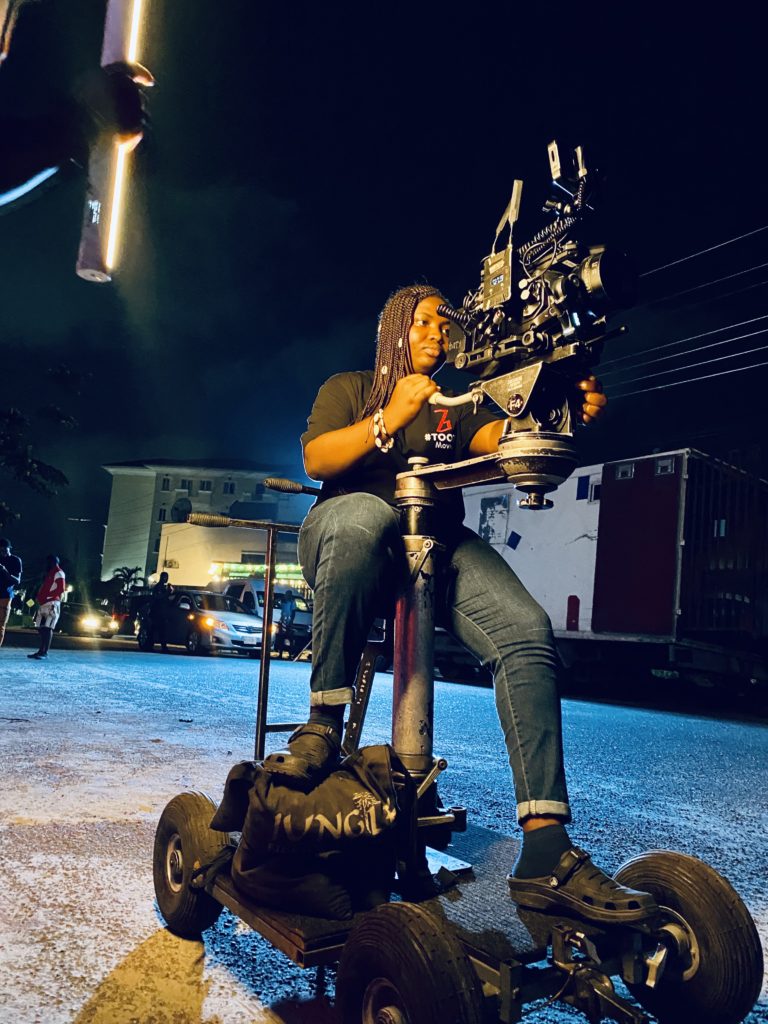
I hope you get there. What’s your work process like?
My work is in two folds — client projects and personal projects. If it’s a client’s project, the first thing I do is decide if I want to take it on. This involves reading the brief and checking out the company and what they stand for. If the project aligns with my career goals, I take it on. Then I sit down for a conversation with the client before we start the production. I ask them for their vision for the project. This helps me choose the best base for production. After that, my team and I shoot and work on post-production.
For personal projects, it’s different. Some projects are more tasking than others, but typically, it goes like this — I have an idea, I develop it, set it into preproduction, and then shoot before going into post-production and distribution. I work with my team of five. Sometimes, we hire freelancers to help us with projects. So far, we’ve been doing great, I must say.
Sounds about right. How do you deal with creative blocks?
Two things help me with my creative block — sleeping and drinking. When I notice I am approaching a block, I take a glass of wine and sleep. Sleep helps me solve problems. When I wake up, I feel light-headed enough to attack the project better. I also watch movies to relax.
The last thing I do is research or ask people for help. Although, I believe some problems don’t need people to solve them because it’s yours to deal with.
I feel you. If you could change anything about the trajectory of your career path, would you?
Yes, I’d have liked to have a female mentor — a cinematographer. I feel like it would’ve helped me navigate the journey easier than it was for me. I know I found my way early, but with a female mentor, I’d have found my feet in the industry earlier.
If you could tell your 15-year-old self something, what would you say?
I’d say I’m glad I didn’t give up, despite what people said because I’m proud of where I am now right now. I’d tell her not to overthink things and just keep at it. It’s going to pay off someday.
Subscribe to our HER newsletter for more stories about African women and how they navigate life.


